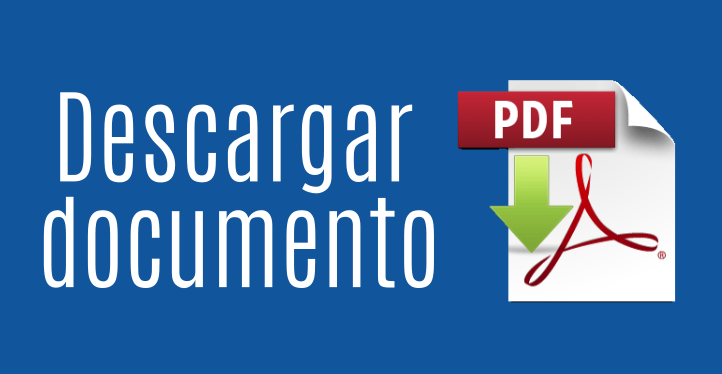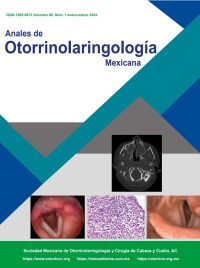
Remission of symptoms in patients with laryngeal contact granuloma treated with botulinum toxin as monotherapy.
An Orl Mex. 2024; 69 (1): 7-15. https://doi.org/10.24245/aorl.v69i1.9539
Pamela Lamas Magallon,1 Fermín M Zubiaur Gomar2
1 Médico residente del Curso de Posgrado de Otorrinolaringología y Cirugía de Cabeza y Cuello.
2 Laringólogo. Clínica de la Voz México. Profesor invitado al Curso de Posgrado de Otorrinolaringología y Cirugía de Cabeza y Cuello.
Facultad Mexicana de Medicina, Universidad La Salle, México.
Resumen
OBJETIVO: Determinar el porcentaje de pacientes con granuloma laríngeo de contacto en los que remiten los síntomas tras la aplicación de toxina botulínica como monoterapia.
MATERIALES Y MÉTODOS: Estudio transversal, retrolectivo, efectuado con los registros de la Clínica de la Voz México entre mayo de 2012 y mayo de 2018. Se incluyeron pacientes con diagnóstico de granuloma laríngeo de contacto tratados con toxina botulínica tipo A como monoterapia.
RESULTADOS: Se reclutaron 9 participantes con diagnóstico de granuloma laríngeo de contacto tratados con toxina botulínica tipo A con edad media de 47 ± 9.0 años y predominio del sexo masculino (n = 7). Se utilizó un abordaje percutáneo asistido con electromiografía, administrando una dosis de toxina que varió de 2 a 6 UI por pliegue vocal. Después del tratamiento 6/9 participantes informaron tener una voz débil leve, mientras que 3/9 la describieron como moderada. El tiempo promedio de recuperación fue de 19.5 ± 5.5 días. Se logró el alivio completo de los síntomas en todos los participantes, con mediana de 5 semanas y rango intercuartílico (RIQ) de 3 a 6.5.
CONCLUSIONES: Debido al alivio completo de los síntomas posterior a la aplicación de toxina botulínica tipo A en los pliegues vocales, los efectos secundarios leves reportados y la menor cantidad de inyecciones en comparación con otros medicamentos, la toxina botulínica tipo A como monoterapia es un tratamiento efectivo y seguro contra el granuloma laríngeo de contacto.
PALABRAS CLAVE: Granuloma laríngeo; toxina botulínica tipo A, cartílago aritenoide.
Abstract
OBJECTIVE: To determine the percentage of patients with laryngeal contact granuloma whose symptoms subside after the injection of botulinum toxin as monotherapy.
MATERIALS AND METHODS: Cross-sectional, retrolective study was done with the records of Clínica de la Voz México from May 2012 to May 2018. Patients with laryngeal contact granuloma treated with botulinum toxin type A as monotherapy were included.
RESULTS: Nine participants diagnosed with contact laryngeal granuloma and treated with botulinum toxin type A with a mean age of 47 ± 9.0 years were recruited, predominantly male (n = 7). A percutaneous approach assisted with electromyography was used, administering a toxin dose ranging from 2-6 units per vocal fold. After treatment, 6/9 participants reported having a weak voice of mild intensity, while 3/9 described it as moderate. The average recovery time was 19.5 ± 5.5 days. Complete relieve of symptoms was achieved in all participants, with a median of 5 weeks and with an interquartile range (IQR) of 3 to 6.5.
CONCLUSIONS: Due to the complete relieve of symptoms after the injection of botulinum toxin type A to the vocal folds, the mild side effects reported, as well as the fewer number of injections compared to other medications, botulinum toxin type A as monotherapy is an effective and safe treatment for laryngeal contact granuloma.
KEYWORDS: Laryngeal granuloma; botulinum toxin type A; Arytenoid cartilage.
Recibido: 1 de febrero 2024
Aceptado: 13 de febrero 2024
Este artículo debe citarse como: Lamas-Magallon P, Zubiaur-Gomar FM. Remisión de los síntomas en pacientes con granuloma laríngeo de contacto tratados con toxina botulínica como monoterapia. An Orl Mex 2024; 69 (1): 7-15.

